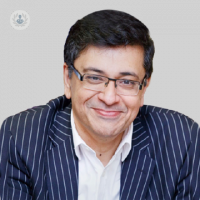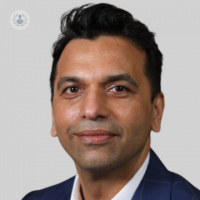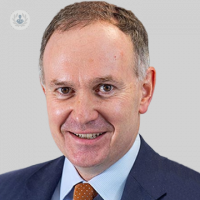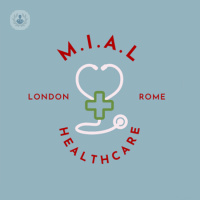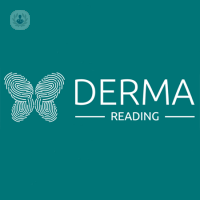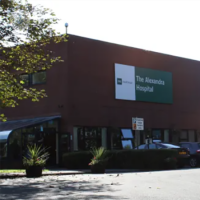What are cysts?
Cysts are closed sacs in the body’s tissue that may be filled with fluid, air, or other substances. They have a membrane, or “shell”, to divide them from the surrounding tissue, and the cells that make up this membrane are abnormal compared to the surrounding cells.
Cysts can appear almost anywhere on the body, including on bones, organs, and the skin. There are hundreds or types of cyst and many possible causes.
Most cysts are benign and some resolve on their own; others may require surgical removal and a small proportion are cancerous.
Types of cysts
There are many types of cyst, including:
- Cystic acne
- Ganglion cyst
- Ingrown hair cyst
- Kidney cysts (e.g. polycystic kidney disease (PKD))
- Liver cyst
- Mucus cyst (mucocele)
- Ovarian cyst
- Pancreatic cyst
- Sebaceous cyst
- Tarlov cyst
Prognosis
The vast majority of cysts are benign (non-cancerous) and cause few problems for the patients. Many cysts simply go away on their own. However, if a cyst fails to resolve by itself, if it is causing particular discomfort or pain, or if its size and appearance bother the patient, it may require surgical removal, although this may also depend on the location of the cyst in the patient’s body.
If a cyst becomes infected, it can become sore and red, and may develop into an abscess (filled with pus).
A small proportion of cysts are cancerous, with the sac being formed by the body as an immune response to try to contain the cancerous cells and prevent them from spreading. However, if the cancer already has its own blood supply, the cyst will be ineffective. It is important to have any cyst that does not disappear quickly checked out by a doctor and monitored to make sure it is not cancerous.
Cysts symptoms
Cysts on the skin or close to it may be visible as lumps on the body. Cysts on the internal organs may be more difficult to spot, unless they cause symptoms such as pain in that area or affect the function of the organ. For example, kidney cysts caused by polycystic kidney disease (PKD) can lead to frequent urination or blood in the urine.
What causes cysts?
A number of things can lead to cysts, including blocked ducts or glands, infections, inherited conditions, chronic inflammation, parasites, injuries, and tumours.
Treatments for cysts
The treatment will depend on the type, size, and location of the cyst. Some common treatments include:
- Draining the fluid or other material from the cyst using a syringe
- Medication to reduce inflammation in the cyst
- Surgery to remove the cyst (usually as a last resort for persistent cysts or if the cyst is cancerous)
Which type of specialist treats cysts?
Cysts can be treated by doctors and surgeons from a number of different specialties, depending on the type and location of the cyst. For example, sebaceous cysts and other cysts affecting the skin may be treated by a dermatologist, while ovarian cysts may be treated by an obstetrician/gynaecologist.
Cisti
What are cysts?
Cysts are closed sacs in the body’s tissue that may be filled with fluid, air, or other substances. They have a membrane, or “shell”, to divide them from the surrounding tissue, and the cells that make up this membrane are abnormal compared to the surrounding cells.
Cysts can appear almost anywhere on the body, including on bones, organs, and the skin. There are hundreds or types of cyst and many possible causes.
Most cysts are benign and some resolve on their own; others may require surgical removal and a small proportion are cancerous.
Types of cysts
There are many types of cyst, including:
- Cystic acne
- Ganglion cyst
- Ingrown hair cyst
- Kidney cysts (e.g. polycystic kidney disease (PKD))
- Liver cyst
- Mucus cyst (mucocele)
- Ovarian cyst
- Pancreatic cyst
- Sebaceous cyst
- Tarlov cyst
Prognosis
The vast majority of cysts are benign (non-cancerous) and cause few problems for the patients. Many cysts simply go away on their own. However, if a cyst fails to resolve by itself, if it is causing particular discomfort or pain, or if its size and appearance bother the patient, it may require surgical removal, although this may also depend on the location of the cyst in the patient’s body.
If a cyst becomes infected, it can become sore and red, and may develop into an abscess (filled with pus).
A small proportion of cysts are cancerous, with the sac being formed by the body as an immune response to try to contain the cancerous cells and prevent them from spreading. However, if the cancer already has its own blood supply, the cyst will be ineffective. It is important to have any cyst that does not disappear quickly checked out by a doctor and monitored to make sure it is not cancerous.
Cysts symptoms
Cysts on the skin or close to it may be visible as lumps on the body. Cysts on the internal organs may be more difficult to spot, unless they cause symptoms such as pain in that area or affect the function of the organ. For example, kidney cysts caused by polycystic kidney disease (PKD) can lead to frequent urination or blood in the urine.
What causes cysts?
A number of things can lead to cysts, including blocked ducts or glands, infections, inherited conditions, chronic inflammation, parasites, injuries, and tumours.
Treatments for cysts
The treatment will depend on the type, size, and location of the cyst. Some common treatments include:
- Draining the fluid or other material from the cyst using a syringe
- Medication to reduce inflammation in the cyst
- Surgery to remove the cyst (usually as a last resort for persistent cysts or if the cyst is cancerous)
Which type of specialist treats cysts?
Cysts can be treated by doctors and surgeons from a number of different specialties, depending on the type and location of the cyst. For example, sebaceous cysts and other cysts affecting the skin may be treated by a dermatologist, while ovarian cysts may be treated by an obstetrician/gynaecologist.


Epididymal cysts: When is surgery needed to remove growths in the scrotum?
Mr Mark Cynk
2024-11-21
An epididymal cyst is a fluid-filled growth that forms in the epididymis, the tube located on the upper testicle (in the scrotum). Although non-cancerous and generally painless, surgery for the removal of an epididymal cyst may be recommended. Mr Mark Cynk, highly experienced consultant urological surgeon, provides an expert insight into epididymal cyst surgery. Mostrare di più


Recurrent vaginal skin infections: Could diabetes be the cause?
Mr Mahantesh Karoshi
2024-11-21
Leading consultant gynaecologist and women’s health expert Mr Mahantesh Karoshi sheds light on the causes of recurrent vaginal skin infections and explains how undiagnosed diabetes may be related in this informative article. Mostrare di più
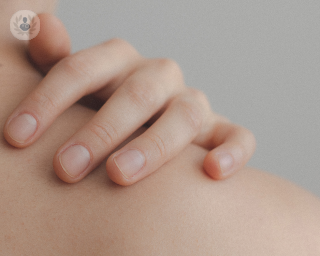

What are lipomas how can removed
Miss Sujatha Tadiparthi
2024-11-21
Lipomas are soft, painless lumps that grow slowly under the skin. While they don't normally cause any harm, they tend to grow larger and you may choose to have one removed to feel less self-conscious of the unsightly swelling. Miss Sujatha Tadiparthi, a leading plastic surgeon based in Surrey, Kent and London, explains what they are and what to expect when you undergo a lipoma removal procedure. Mostrare di più


Lipoma vs. cyst: how to spot the difference
Dr Dev Shah
2024-11-21
Both lipomas and cysts can feel quite similar during their early stages, but would you be able to spot the difference? One of our leading dermatologists Dr Dev Shah explains how to recognise both and how they can be healed. Mostrare di più
Medici esperti in Cisti
-
Mr Ashfaq Khan
Ginecologia e OstetriciaEsperto in:
- Colonoscopia
- Virus del Papilloma umano (VPH)
- Test di striscio anormale
- Ovaio policistico
- Cisti
-
Mr Thomas Satyadas
Chirurgia generaleEsperto in:
- Chirurgia della cistifellea
- Ernia
- Cancro del fegato
- Cancro al pancreas
- Chirurgia ad accesso minimo (chirurgia del buco della serratura)
- Cisti
-
Mr Patrick Gillespie
Chirurgia plastica, estetica e riparatriceEsperto in:
- verruche
- Tunnel carpale
- Dupuytren
- Cancro della pelle
- Cisti
- Artrosi della mano
-
Professor Julia Scarisbrick
DermatologiaEsperto in:
- Cancro della pelle
- Linfomi
- Acne
- Diagnosi cancro della pelle
- Cisti
- Nei
-
Mr Deep J Malde
Chirurgia generaleEsperto in:
- Chirurgia della cistifellea
- Cancro del fegato
- Cancro al pancreas
- Pancreatite
- Cisti
- Tumori neuroendocrini
- Visualizzare tutti

MIAL Medici Italiani A Londra
MIAL Medici Italiani A Londra
9 Harley Street, London
No existe teléfono en el centro.
Se utilizzi questo numero di Top Doctors autorizzi al trattamento dei dati a fini statistici e commerciali. Per maggiori informazioni, leggi la nostra l’informativa sulla privacy
Top Doctors

Derma Reading
Derma Reading
Shepherds Hill, Woodley, RG6 1FE
No existe teléfono en el centro.
Se utilizzi questo numero di Top Doctors autorizzi al trattamento dei dati a fini statistici e commerciali. Per maggiori informazioni, leggi la nostra l’informativa sulla privacy
Top Doctors

The Alexandra Hospital - part of Circle Health Group
The Alexandra Hospital - part of Circle Health Group
Mill Ln, Cheadle
No existe teléfono en el centro.
Se utilizzi questo numero di Top Doctors autorizzi al trattamento dei dati a fini statistici e commerciali. Per maggiori informazioni, leggi la nostra l’informativa sulla privacy
Top Doctors
-
MIAL Medici Italiani A Londra
9 Harley Street, London , W1G Marylebone LondonEsperto in:
- Cardiologia
- Fisioterapia
- Medicina interna
- Neurologia
- Otorinolaringoiatria
- Radiologia
-
Derma Reading
Shepherds Hill, Woodley, RG6 1FE, ReadingEsperto in:
- Acne
- Cancro della pelle
- Dermatologia pediatrica
- Moles
- Medicina estetica
- La perdita di capelli
-
The Alexandra Hospital - part of Circle Health Group
Mill Ln, Cheadle, CheadleEsperto in:
- Anca
- Cardiologia
- Spalla e gomito
- Pediatria
- Piede e caviglia
- Ginocchio
- Visualizzare tutti
